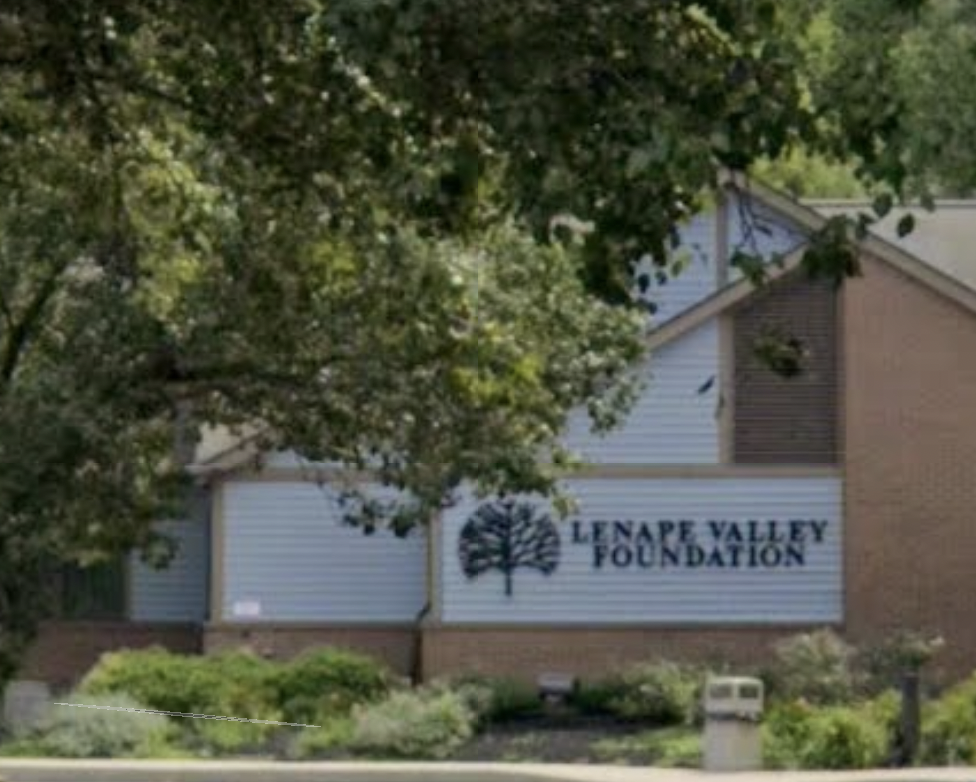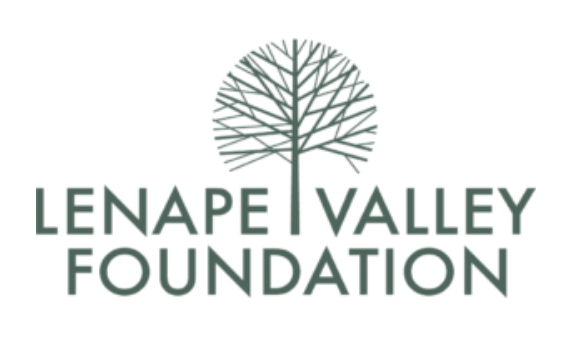Lenape Valley Foundation


Overview
Lenape Valley Foundation is a mental health treatment center for people seeking treatment near Bucks County. As part of their treatment modalities for recovery, Lenape Valley Foundation provides couples/family therapy during treatment. Lenape Valley Foundation is located in Doylestown, Pennsylvania, accepting cash or self-payment for treatment.
Lenape Valley Foundation at a Glance
Payment Options
- Cash or self-payment
- Medicaid
- Medicare
- Private health insurance
- Federal military insurance (e.g., TRICARE)
Assessments
- Screening for tobacco use
- Comprehensive mental health assessment
- Comprehensive substance use assessment
Age Groups
- Seniors or older adults
- Children/adolescents
- Young adults
- Adults
- Seniors
Ancillary Services
- Assertive community treatment
- Intensive case management
- Case management service
- Court-ordered outpatient treatment
- Family psychoeducation
Treatment At Lenape Valley Foundation

Conditions Treated
Mental health treatment:
Mental health treatment involves a range of therapeutic approaches, provided by licensed professionals, to address mental health challenges. It includes psychotherapy, medication, and holistic practices to help individuals manage conditions, improve coping skills, and enhance overall well-being. The goal is to empower individuals to lead fulfilling lives and reduce the stigma surrounding mental health.
Substance use treatment:
Substance use rehabilitation represents a holistic treatment strategy tailored to aid individuals grappling with drug or alcohol addiction. This comprehensive rehabilitation method encompasses two key aspects: first, addressing the physical dependency, often commencing with detoxification, and second, tackling the psychological triggers through a range of therapeutic techniques. The ultimate aim is to empower individuals to attain and sustain sobriety while providing them with the necessary skills and coping mechanisms to successfully reintegrate into society and lead a life free from substance abuse.
Co-occurring Disorders:
Dual-diagnosis rehabilitation centers often offer the most suitable approach for addressing concurrent mental health and substance abuse issues. These facilities typically employ a team of medical and behavioral specialists who utilize a variety of interventions and create a conducive healing environment to support your journey toward lasting recovery. Their comprehensive treatment approach typically encompasses evidence-based therapies such as cognitive-behavioral therapy, recovery support meetings, 12-step facilitation, psychoeducation, skills training, and group therapy to help you achieve and maintain long-term wellness.

Levels Of Care
Partial Hospitalization Program:
A Partial Hospitalization Program (PHP) is a structured short-term intensive rehabilitation service primarily aimed at individuals with acute symptoms that are challenging to manage but do not necessitate round-the-clock care. PHPs typically run 3-5 days a week for about 6 hours each day, from 1 to 6 months, offering structured activities such as individual and/or group therapy. While some PHPs offer residential facilities allowing patients to stay overnight, others operate on a non-residential basis, enabling patients to return home each evening.
Outpatient:
Outpatient programs cater to individuals who are in good medical condition and are not at a heightened risk of relapse, including those who have successfully finished their inpatient treatment. These programs usually build upon clients' existing treatment strategies, providing ongoing addiction counseling and educational support for recovery. Individuals who enter outpatient care right after detoxification may also undergo medical and psychological evaluations, followed by the creation of personalized treatment plans. Most outpatient rehabilitation centers offer various levels of care tailored to meet each client's specific needs.

Treatment Modalities
Couples/family therapy:
Couples Therapy in rehab helps partners facing addiction recovery to strengthen their relationship. Expert therapists guide couples in addressing substance-related challenges, fostering trust, and enhancing communication, enhancing their chances of lasting recovery together.
Group counseling:
Group Counseling is a therapeutic approach where individuals come together under the guidance of a trained counselor to share experiences, provide mutual support, and gain insights. It fosters a sense of community, promotes understanding through diverse perspectives, and offers personal growth and problem-solving strategies.
Cognitive behavioral therapy:
Cognitive Behavioral Therapy (CBT) is a form of psychotherapy that emphasizes the critical role of thinking in how we feel and what we do. It aims to identify and challenge distorted or negative thought patterns and behaviors, teaching individuals to replace them with more constructive and rational beliefs. CBT is evidence-based and has been shown to be effective in treating a variety of psychological disorders, including depression, anxiety, and phobias, among others.
Dialectical behavior therapy:
Dialectical Behavior Therapy (DBT) for addiction treatment is a comprehensive cognitive-behavioral approach initially developed to treat individuals with borderline personality disorder. Adapted for addiction, DBT emphasizes the development of four core skills: mindfulness, emotion regulation, distress tolerance, and interpersonal effectiveness. Through individual and group sessions, patients learn to understand their triggers, manage negative emotions, cope with cravings, and improve relationships, all of which contribute to long-term recovery and reduced substance use.
Integrated Mental and Substance Use Disorder treatment:
Integrated Mental and Substance Use Disorder treatment is a comprehensive approach to treating individuals with both mental health and substance use disorders. It aims to address both conditions simultaneously through a coordinated and integrated approach. The goal is to improve overall well-being and reduce the risk of relapse.
Activity therapy:
Activity Therapy encompasses a range of structured activities aimed at promoting physical, emotional, and mental healing and well-being among individuals recovering from substance abuse, physical injuries, or mental health issues. Utilizing creative expression, outdoor activities, and skill-building exercises, this therapeutic approach helps individuals rediscover their interests, develop coping skills, enhance self-esteem, and improve interpersonal relationships. By engaging in meaningful activities in a supportive environment, individuals are empowered to overcome challenges and progress towards a holistic and lasting recovery.
Telemedicine/telehealth therapy:
Telehealth Therapy enables individuals to access mental health services remotely through digital technology. Utilizing secure video conferencing, individuals can engage with qualified therapists from the comfort of their home, overcoming geographical barriers and often reducing waiting times. This level of care offers a flexible and accessible approach to mental health support, especially beneficial for those with mobility issues, busy schedules, or residing in rural or underserved areas.
Smoking/vaping/tobacco cessation counseling:
Tobacco cessation counseling is a dialogue with a counselor about your tobacco or vaping habits, examining its place in your daily life to strategize quitting. It offers interventions for individuals keen on quitting, encompassing behavioral guidance and group or one-on-one counseling. These sessions can range from short encounters (under 5 minutes) to in-depth discussions (over 10 minutes) and might require multiple meetings.
Eye Movement Desensitization and Reprocessing therapy:
Eye Movement Desensitization and Reprocessing Therapy (EMDR) is a psychotherapeutic technique aimed at alleviating distress associated with traumatic memories. It involves a structured eight-phase approach, during which the client recalls distressing images while receiving bilateral sensory input, such as side-to-side eye movements. Through this process, EMDR aids in the reprocessing of traumatic memories, potentially rendering them less distressing and allowing for improved mental health and functioning.
Abnormal involuntary movement scale:
The AIMS is a tool with 12 criteria clinicians use to evaluate the intensity of dyskinesias, especially in facial, limb, and torso movements, in patients on neuroleptic drugs. It also examines the overall impact, the degree of disability caused, and how conscious and distressed the patient is about these movements. The AIMS is widely utilized in research studies of antipsychotic drugs to check for tardive dyskinesia. Its straightforward structure and quick assessment process make regular clinical checks by professionals or other qualified individuals convenient.
Ancillary Services
Languages
- Sign language services for the deaf and hard of hearing
- Spanish
Additional Services
- Pharmacotherapies administered during treatment
- Mentoring/peer support
- Metabolic syndrome monitoring
Special Programs
- Criminal justice (other than DUI/DWI)/Forensic clients
- Clients who have experienced trauma
- Persons 18 and older with serious mental illness (SMI)
- Persons with post-traumatic stress disorder (PTSD)
Contact Information
DISCLAIMER: The facility name, logo and brand are the property and registered trademarks of Lenape Valley Foundation, and are being used for identification and informational purposes only. Use of these names, logos and brands shall not imply endorsement. BetterAddictionCare.com is not affiliated with or sponsored by Lenape Valley Foundation.

